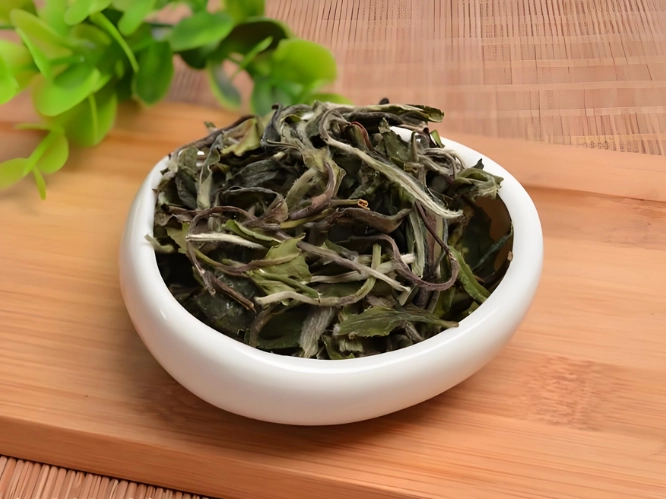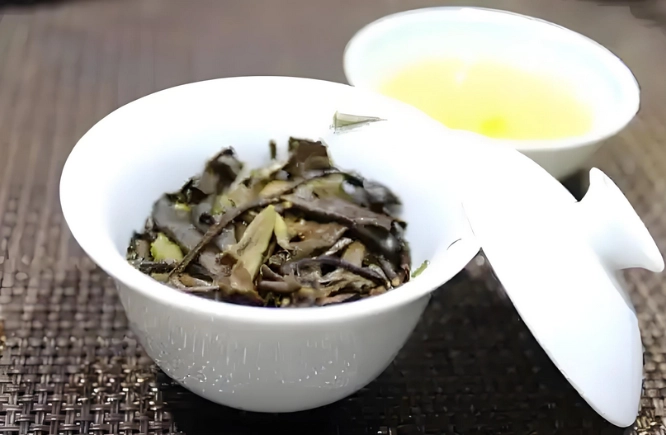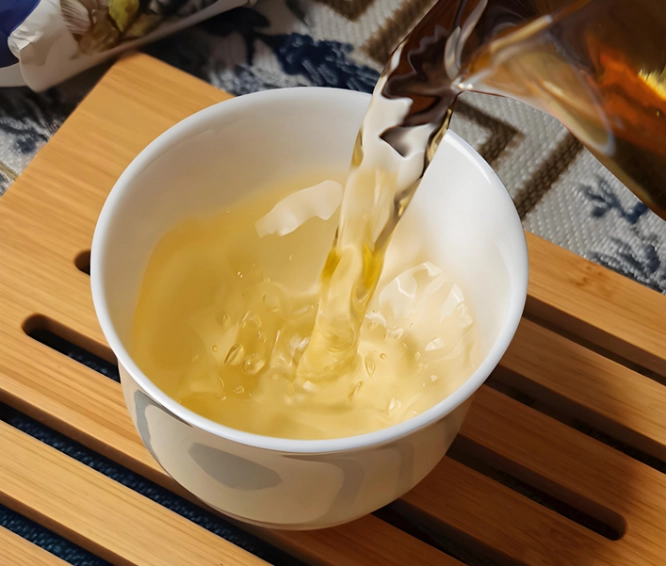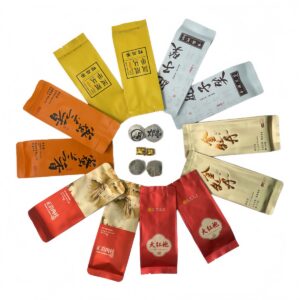white tea for digestion is more than a buzzword—it’s a delicious, science-backed way to ease your post-meal discomfort and boost overall gut health. Whether you’re a health enthusiast, an office worker seeking relief from the post-lunch slump, or on a weight-loss journey, a warm cup of white tea can be your digestive ally.
In this article, we’ll dive into how white tea supports digestion, strengthens immunity, and aids weight management. We’ll weave in authoritative research, share mindful brewing tips, and introduce you to Tanbiwencha’s premium white teas as your next daily ritual.
1. What Is White Tea? A Delicate Digestive Aid
White tea is the least processed of all true teas, plucked as young buds and early leaves from the Camellia sinensis plant. Minimal withering and no rolling preserve its silvery appearance and whisper-light floral aroma. This gentle profile makes white tea for digestion a natural choice—delivering beneficial polyphenols and a modest caffeine boost without overwhelming your stomach.

2. How White Tea Supports Your Gut
2.1 Warmth, Hydration & Gentle Motility
A warm beverage instantly relaxes digestive muscles and encourages peristalsis—the wave-like contractions that move food through your system. Sipping white tea for digestion keeps you hydrated and helps banish bloating after heavy meals.
2.2 Polyphenols: Friends to Your Microbiome
White tea brims with catechins and flavonoids—antioxidants that survive digestion and reach your colon. In simulated gastrointestinal studies, tea polyphenols retained up to 80% of their antioxidant activity after digestion, promoting a balanced microbiome and reducing inflammation (Stalmach et al., 2015; link). A happy microbiome means less gas, fewer cramps, and smoother digestion overall.
3. Post-Meal Reset: White Tea for Post-Meal Digestion
3.1 Perfect Timing
For optimal white tea for post-meal digestion, wait 10–20 minutes after eating. This lets your stomach launch its breakdown process before you introduce the tea’s hydrating warmth.
3.2 Brewing for Benefits
- Water Temperature: Aim for 175°F (80°C). Boiling water can scorch delicate leaves, creating bitterness.
- Steep Time: Infuse for 3–5 minutes. A shorter steep yields lighter flavor; a longer steep extracts more polyphenols—tailor to your comfort.
- Loose-Leaf vs. Tea Bags: Loose leaves (like Tanbiwencha’s Silver Needle) unfurl fully, releasing compounds gradually, whereas tea bags can flood your cup with caffeine and tannins too quickly.
4. Beyond Digestion: White Tea for Immune Support
Those same polyphenols that aid digestion also bolster immunity. Sang et al. (2010) found that white tea extracts modulate inflammatory pathways and enhance antioxidant enzyme activity in human cells (Food & Function; link). During flu season or high-stress work periods, enjoying white tea for immune support twice daily can be a simple, delicious safeguard.

5. White Tea and Weight Management
5.1 Rev Up Your Metabolism
Caffeine and catechins in white tea work together to boost metabolic rate. Boschmann et al. (2013) reported that regular tea intake elevated resting energy expenditure by 4% over 24 hours, supporting white tea weight loss efforts when paired with a balanced diet and exercise (European Journal of Clinical Nutrition).
5.2 Real-Life Success Stories
Health enthusiasts often swap sugary drinks for white tea and find that their snacking urges subside. One tea blogger noted, “A cup of white tea after dinner stopped my late-night cravings,” highlighting the tea’s mild caffeine and appetite-regulating polyphenols.
6. Tanbiwencha’s Top Picks: Premium White Teas for Wellness
If you’re seeking the best white tea for digestion, look no further than Tanbiwencha. Sourced from Fujian’s ancient gardens and harvested by family-run farms, their teas include:
- Silver Needle (Baihao Yinzhen): Harvested from only the youngest buds, offering a honeyed aroma and maximum polyphenols.
- White Peony (Bai Mudan): A blend of buds and leaves for a fuller taste with gentle caffeine.
Each tin is sustainably produced and free from pesticides—just pure, gut-friendly refreshment.
7. Brewing Tips: Crafting the Perfect Digestive Cup
- Preheat Your Teapot: Rinse with hot water to stabilize temperature.
- Measure Precisely: Use 2 g of tea per 6 oz of water for optimal infusion.
- Multiple Infusions: Re-steep leaves 2–3 times; later steeps contain less caffeine but retain polyphenols.
- Mindful Sipping: Hold the cup, inhale the floral aroma, and sip slowly. This ritual calms your mind and aids digestive harmony.

8. FAQs: Your White Tea Digestion Questions Answered
Q1: Can I drink white tea on an empty stomach?
Yes, but pairing it with light food helps buffer the mild caffeine and enhances digestive benefits.
Q2: How many cups per day?
Aim for 2–4 cups, providing 30–60 mg of caffeine—enough to stimulate digestion without overloading your system.
Q3: Additives—yes or no?
A squeeze of lemon may boost antioxidant absorption; a teaspoon of honey adds soothing enzymes and sweetness.
9. Conclusion & Action Plan: Make White Tea Your Daily Ritual
To embrace white tea for digestion, brew a mindful cup after meals, pair sips with a short walk or gentle stretch, and enjoy the warmth that soothes your gut. With Tanbiwencha’s premium white teas, each sip is a healthful luxury—purity, flavor, and digestive support in one. Cheers to smoother digestion, stronger immunity, and balanced wellness!



